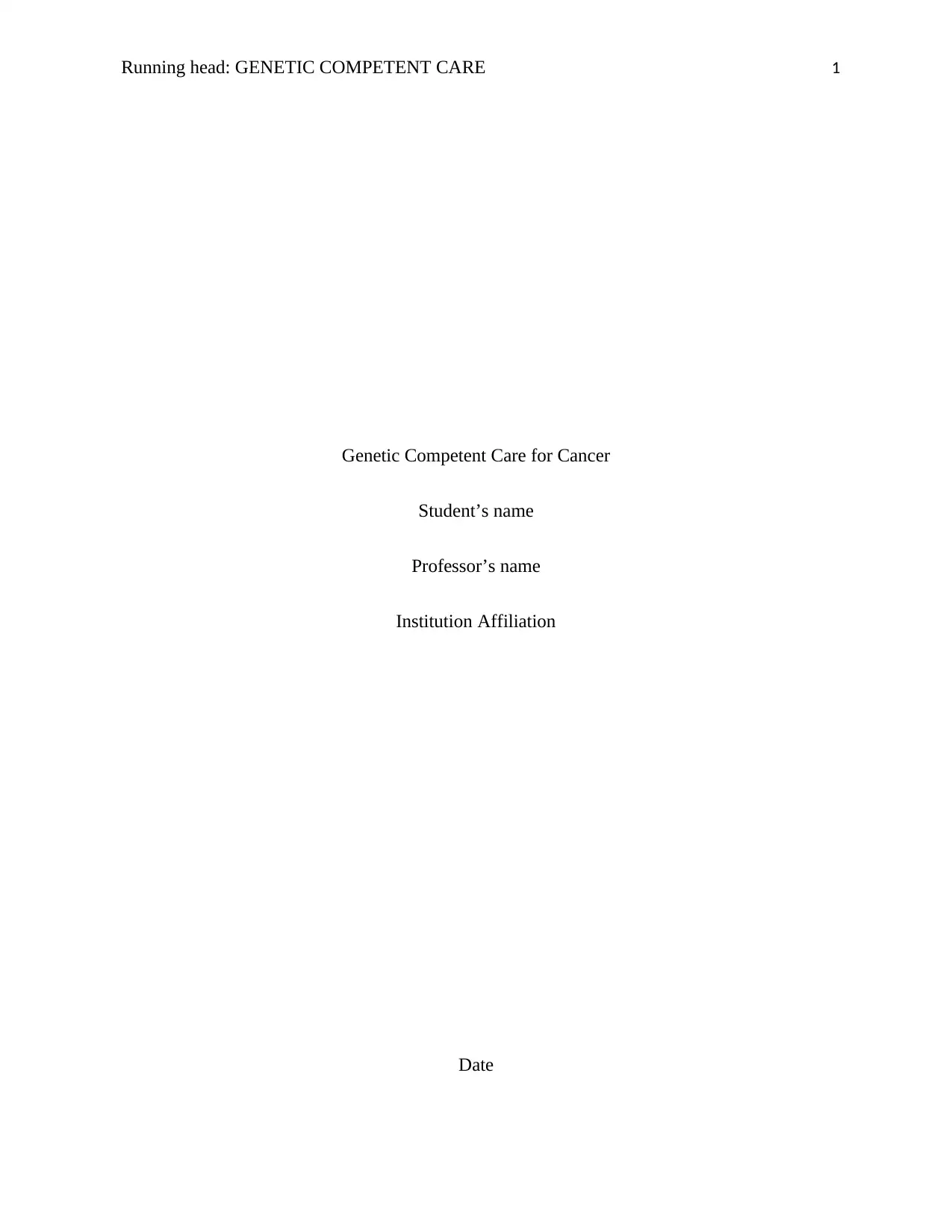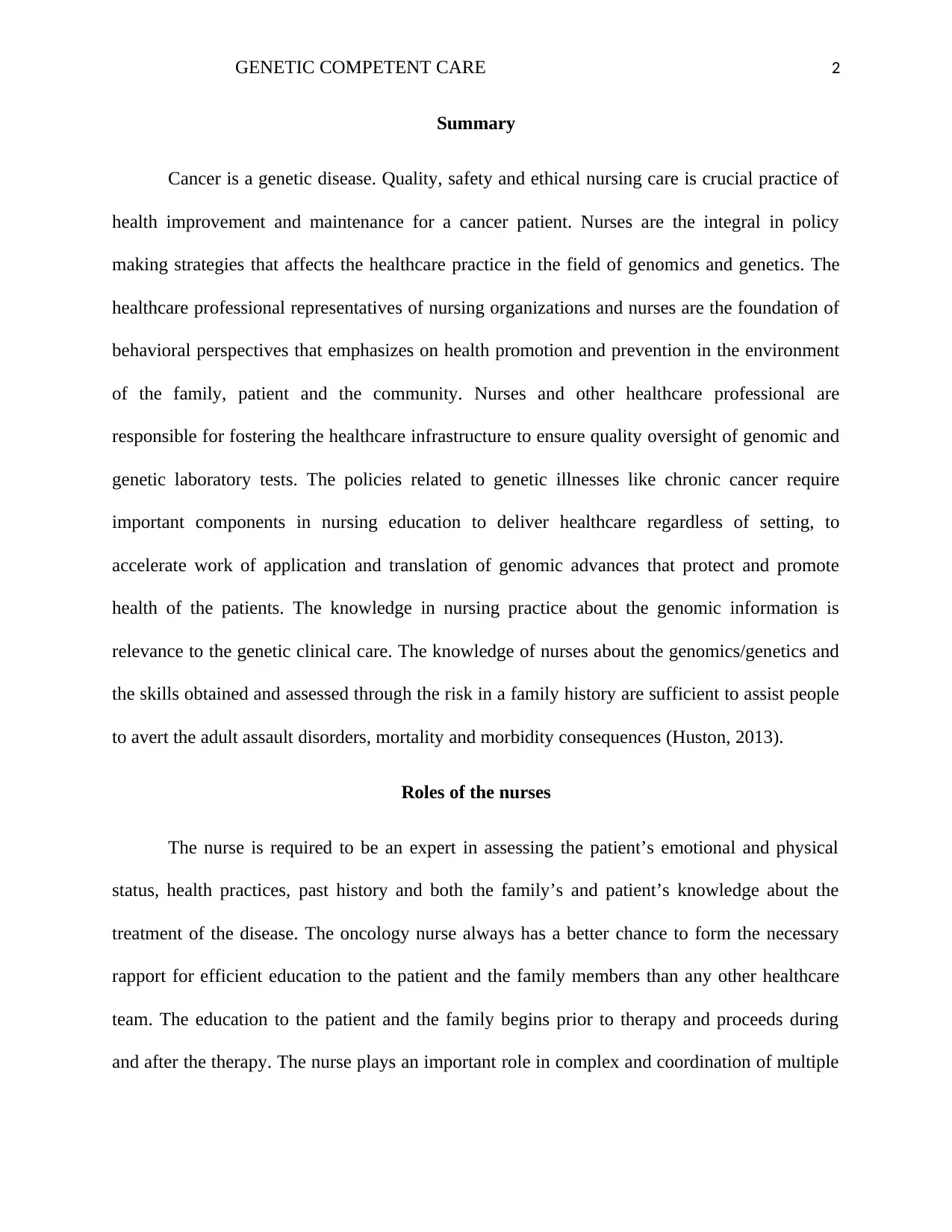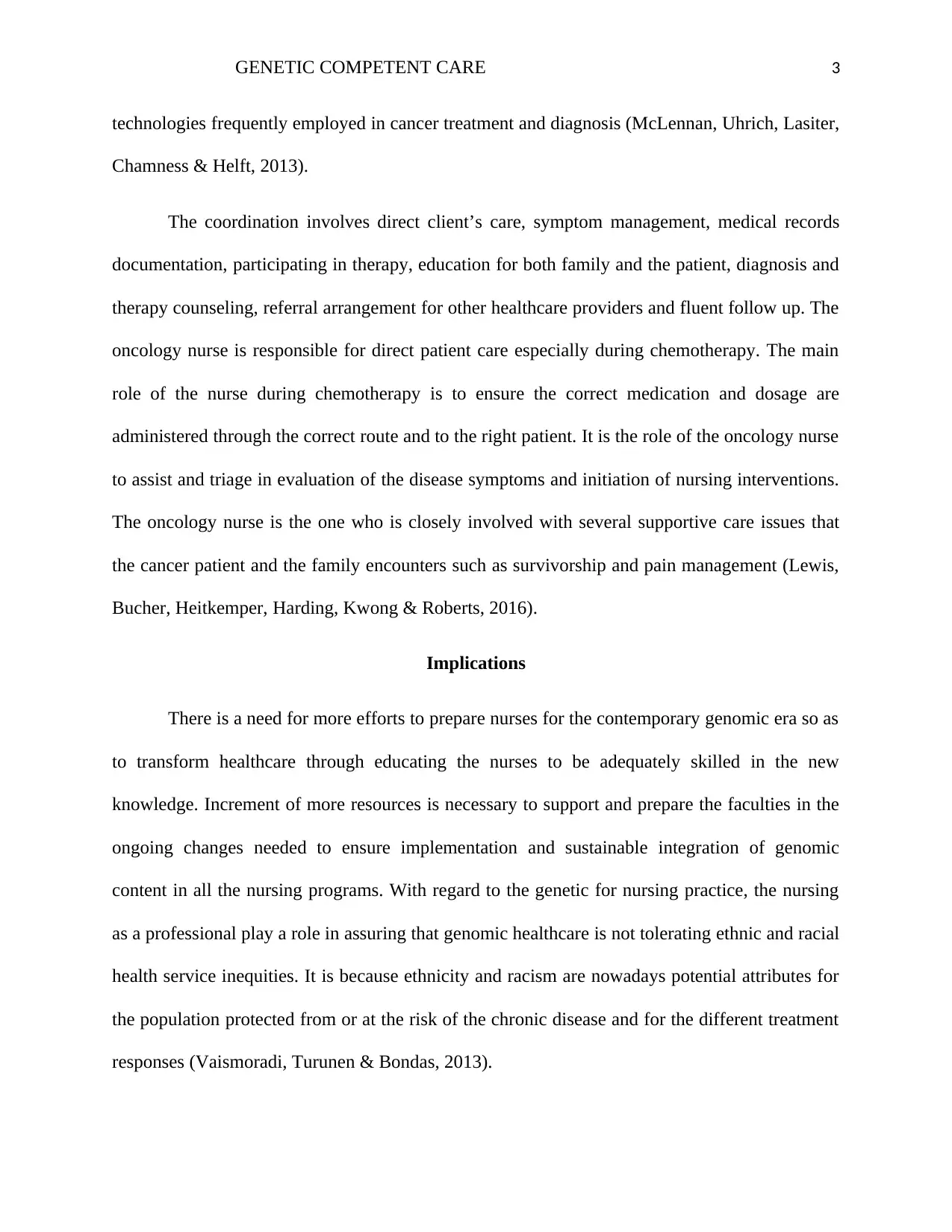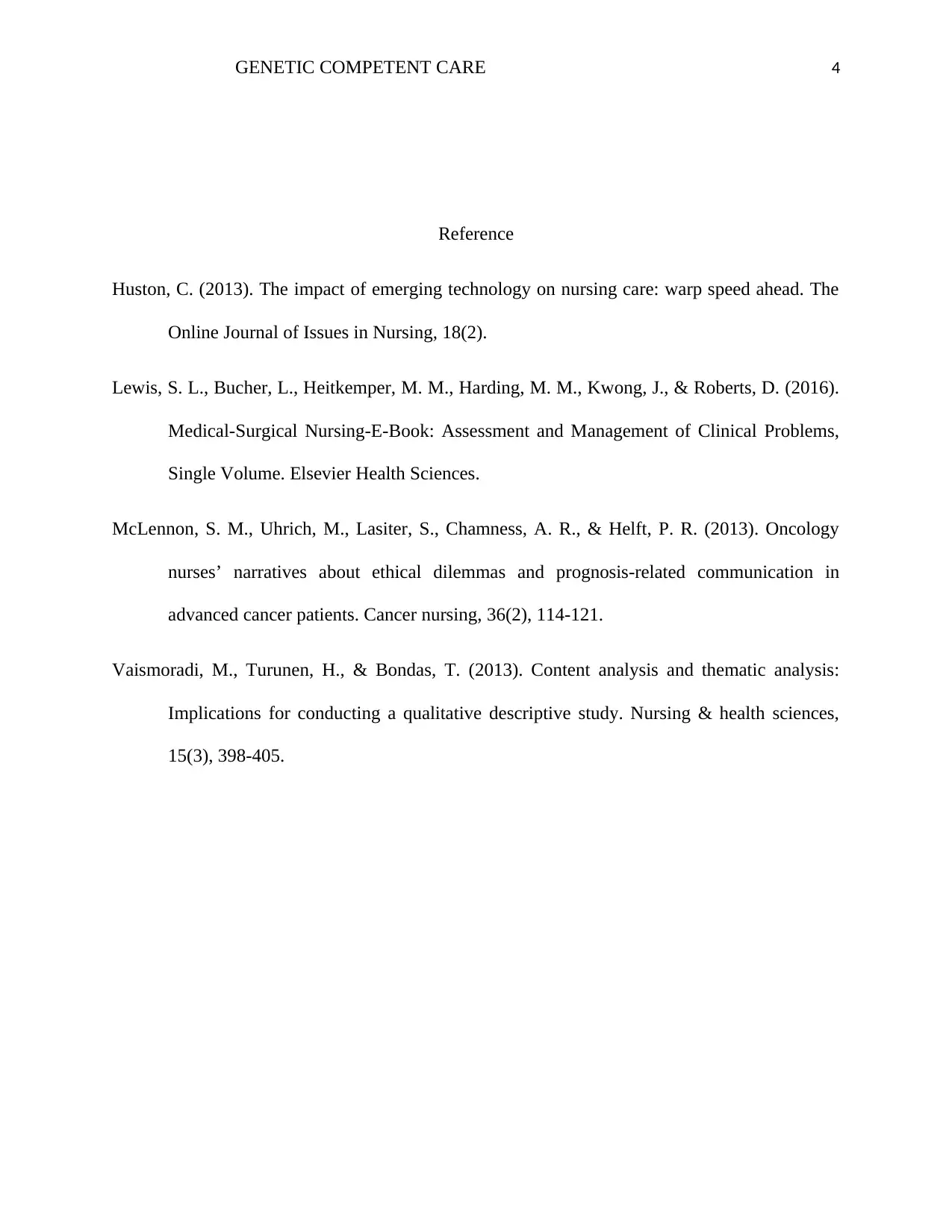Genetic Competent Care in Cancer: The Nurse's Role and Implications
VerifiedAdded on 2023/06/11
|4
|836
|68
Discussion Board Post
AI Summary
This discussion board post delves into the critical role of genetic competent care in managing cancer, emphasizing the nurse's responsibilities in ensuring quality, safe, and ethical patient care. It highlights that cancer is fundamentally a genetic disease, necessitating nurses to be integral in policy-making and healthcare practices related to genomics and genetics. The discussion outlines the nurse's role in assessing patient status, providing education, coordinating complex treatments, and managing symptoms, particularly during chemotherapy. Furthermore, it addresses the implications of integrating genomic knowledge into nursing education to address health service inequities and improve patient outcomes. The post also references scholarly articles to support the discussion on how genetics and genomics relate to nursing practice in cancer care. Desklib offers more resources and solved assignments for students.
1 out of 4










![[object Object]](/_next/static/media/star-bottom.7253800d.svg)